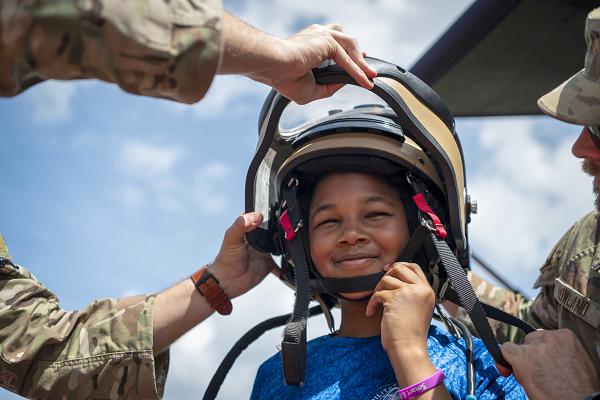
MacDill Air Force Base, Florida. (April 3, 2025): In this adorable photo by Airman 1st Class Alicia Campbell, a student from Tinker K-8 tries on an explosive ordnance helmet during a Contingency and Readiness Education Simulation event. Organized by the base Family Readiness Center, the meeting helps family members understand what their parents experience when they are deployed.
The DOW understands the negative impact deployment can have on military families and is determined to mitigate them. Unlike other professions, the military requires its members to be ready to deploy anywhere in the world to face potential combat. These frequent separations affect family members differently by age and the length of the deployment.
The youngest children, from infants to preschoolers, often struggle with separation anxiety and may become clingy, experience sleep problems including nightmares, or may develop regressive behaviors like thumb-sucking.
Middle children, up to the eighth grade, may have difficulty adjusting to changes in daily routines and may become moody, withdrawn, or depressed. In extreme cases, children may strike out through aggressive behaviors. Some kids experience physical ailments like headaches or stomach problems.
For teenagers, the effects can be more extreme. They may constantly worry about their missing parent and the impact their absence is having on the family’s future. At school, they might find it hard to concentrate, show a decline in academic performance, or even engage in destructive behaviors like substance abuse or sexual activities. Others tend to become withdrawn and lose interest in daily activities.
The challenges of a deployment continue after the member comes home. Teenagers who have been asked to adopt adult roles, for example, may resent going back to how things were before. Deployed families need considerable time to readjust.
That is why the military hosts family readiness seminars like these to cushion the effects of deployment as much as possible.


